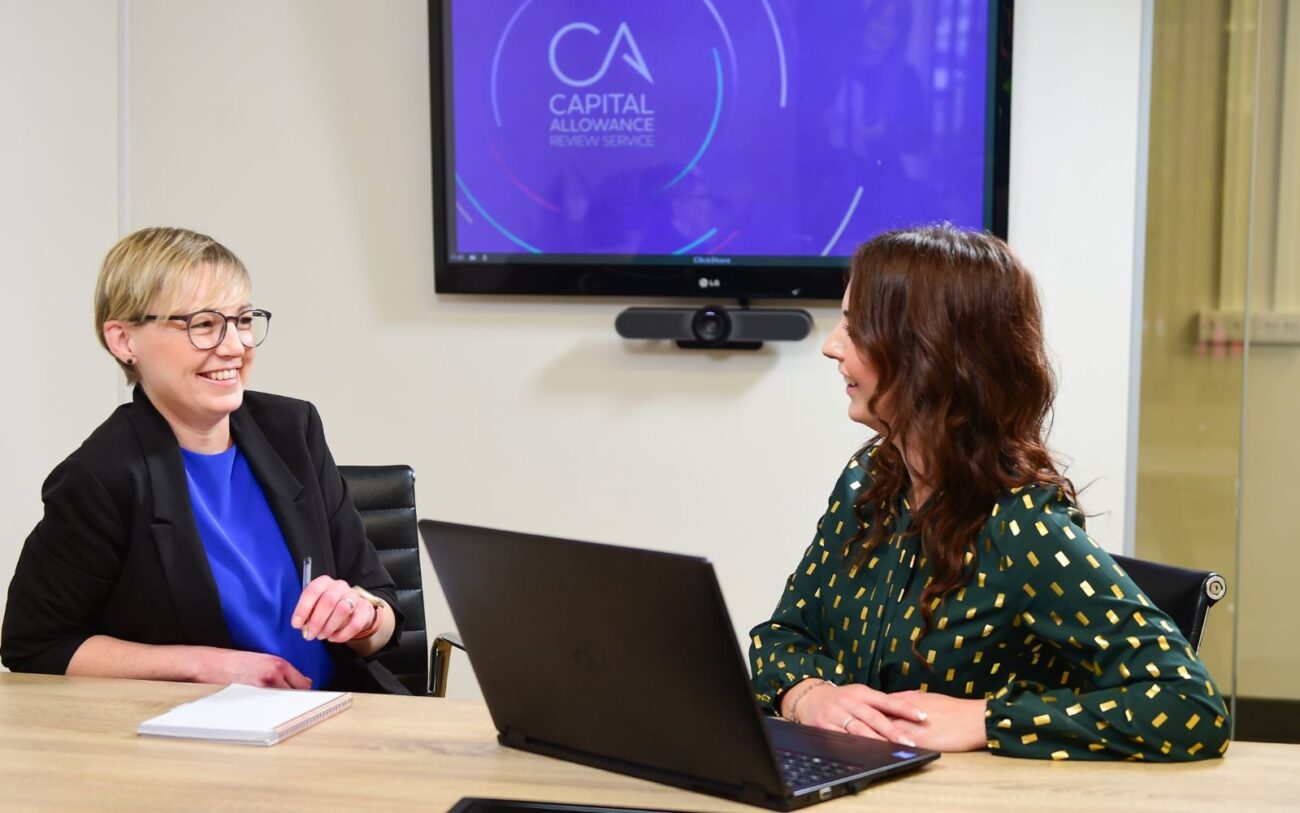Exploring Scenarios
Selling 'movable' items of plant, machinery and fixtures

-
Scenario 1
A simple scenario…
You sell one item of plant and machinery in a single asset pool (assuming that no other allowances such as Annual Investment Allowance (AIA), First Year Allowances, Super-deduction or Full Expensing have been claimed). The tax written down value is £2,000 and you sell the asset for £3,000. The difference of £1,000 is a balancing charge, and you will be subject to tax on that amount. If it was the other way round, the Tax Written Down Value was £3,000 and you sold it for £2,000, then a balancing allowance of £1,000 would arise and that would be allowed against your tax liabilities.
-
Scenario 2
A more complex scenario…
What if you close down your business and sell all your plant and machinery and fixtures and fittings? Again, subject to considering any Annual Investment Allowance (AIA), First Year Allowances, Super-deduction or Full Expensing claimed, the result would likely be similar to the example above, you would have a balancing charge if you sell the assets for more than tax was written down value, and a balancing allowance if you sell them for less.
*Note that special rules apply to the scenarios above as a “clawback calculation” if an asset is disposed of upon which Super-deduction, Full Expensing or Special Rate First Year Allowance has been claimed. It is also worth mentioning that Annual Investment Allowance (AIA) cannot be claimed in the year of disposal of an asset.
Selling a Property

-
Example 1
A limited company bought a property in the year 2010 and in 2019. Capital Allowance specialists identified a claim of £200,000 as being available on embedded items in the property. These could include items such as lighting systems, heating systems, fire alarm systems, sanitary ware, etc.)
Annual Investment Allowance (AIA), and other first-year allowances are not available, and therefore the costs are subject to the annual writing down rates of 18% for general/main pool items and 6% for special rate pool items. In 2023 the company sell the property, which includes all the embedded items. The company will have the option of keeping all or some of the allowances or passing them over to the new owner of the property via a S198 Election. As the company is continuing in business and elected to retain all capital allowances they will continue to claim at the annual rates of 18% and 6%.
As a result, no Balancing Charge or Balancing Allowance would be triggered.
-
Example 2
A limited company bought the property with exactly the same details as above with regard to the cost of the property and the claimable amount of Capital Allowances.
However, this time the Company is ceasing to trade and selling all its assets in 2023.
Up to the date of sale, the Company has only claimed £50,000 of the £200,000 Capital Allowance available. As the Company has ceased to trade the remaining £150,000 allowances can potentially be brought into account as a Balancing Allowance in the tax computation and used against any tax liabilities due in the final tax computations.
As a footnote, if the ltd company was unable to use any balancing allowances to offset tax liabilities and there was no value in carrying back losses under terminal rules, then consideration should be given to transferring the capital allowances to the new property owner via a Section 198 Election. Potentially, those capital allowances could then be used to negotiate a better sale price for the property.
Example:
Let's say you bought a machine for £10,000 and claimed £7,000 in capital allowances over a few years. The TWDV is now £3,000 (£10,000 - £7,000).
-
Scenario 1
- You sell the machine for £5,000.
- Disposal Value (£5,000) > TWDV (£3,000)
- Balancing Charge = £5,000 – £3,000 = £2,000. This £2,000 will be added to your taxable profits.
- You sell the machine for £5,000.
-
Scenario 2
- You sell the machine for £2,000.
- Disposal Value (£2,000) < TWDV (£3,000)
In this case, a balancing allowance of £1,000 (£3,000 – £2,000) would arise, which can be deducted from your taxable profits.
- You sell the machine for £2,000.
Different Pool Types and Disposal Impact
-
General Pool
When all pooled assets are disposed of and a small value remains, that value becomes a balancing allowance.
-
Single Asset Pools
Primarily used for mixed-use assets. The adjustment reflects only the business-use percentage. There is no tax relief for any private use of an asset so the private use percentage would also be separated in any balancing charge/allowance situation.
Other single asset pools would include the treatment (where elected for) of short-term assets with an expected useful economic life of less than eight years. In this case any balancing adjustment would take into account the disposal proceeds v TWDV.
-
Special Rate Pool
Assets include:
- Electrical systems
- Water and heating systems
- Lifts, escalators, and insulation
Since these attract lower annual writing-down allowances, the gap between TWDV and disposal value is often wider, making balancing allowances more likely.
-
Record-Keeping and Reporting
Proper record-keeping is essential:
- Track original asset costs and improvements
- Log annual capital allowances claimed
- Maintain evidence of disposal values (invoices or valuations)
Incorrect data can lead to missed reliefs or tax liabilities. HMRC expects supporting documentation when reviewing balancing charge or allowance claims.
-
Timing Considerations
Balancing adjustments apply in the accounting period of the disposal.
- This means profits (or deductions) must be reported in the period the asset is sold or otherwise disposed of.
- Late disposals or errors in reporting can cause misaligned tax returns.
Careful planning, particularly around year-end, can help manage tax liabilities strategically.
-
Planning Opportunities
- Asset Scheduling: Plan disposals to fall in a favourable tax year.
- Pooling Review: Check which assets should be separately pooled.
- Professional Valuations: For property or gifted assets, ensure accurate market values.
Tax Forecasting: Use balancing charges/allowances in tax planning to avoid surprises
Detailed Example of a Business with Multiple Assets
Let’s take a business with assets spread across various pools to understand the nuances further. A company may dispose of office equipment, long-life assets, and integral features in the same year.
-
Scenario:
- Main Pool Asset: Office Equipment with TWDV £2,000
- Special Rate Pool Asset: Electrical Systems with TWDV £15,000
- Single Asset Pool Asset: Vehicle with TWDV £3,000
The company sells all three assets for a combined £25,000. The balancing charge for each asset is calculated separately based on their individual TWDV.
Seeking professional assistance
Capital Allowance Experts maximise your tax relief
Navigating tax complexities can be daunting, which is why seeking professional assistance is beneficial. Tax experts to the rescue! Capital Allowance specialists are experts who can guide you through tax regulations. With their knowledge and experience, they can help optimise your tax position by making the most of available allowances and deductions while minimising liabilities.
Get to know our team
The Expertise of the CARS Team
At CARS, our dedicated team of highly qualified professionals is committed to delivering exceptional results through meticulous due diligence and maximising claims for our clients. With over two decades of experience, we have been consistently assisting advisors and individuals with commercial property interests.
Our success lies in our well-developed process and proven formula, which has consistently delivered great results for the claims we handle. We take pride in our unwavering dedication to providing the best service possible, and this commitment has been acknowledged through the positive testimonials we have received.
Get in touch with our team to experience the expertise and efficiency that have made us a trusted partner in the industry for over 20 years.
Latest News
-
18 June 2025
Can You Use Annual Investment Allowance for Green Energy Upgrades in Offices?
With energy prices on the rise and sustainability high on the business agenda, many companies are investing in green energy upgrades for their office buildings. Whether it’s installing solar panels, upgrading to energy-efficient lighting, or fitting new heating systems, these improvements can reduce... -
10 June 2025
How to Uncover Property Embedded Fixtures and Fittings for Tax Purposes
When it comes to claiming capital allowances, one of the most commonly missed opportunities lies in embedded fixtures and fittings within commercial properties. These are often hidden in plain- view, but identifying them correctly can lead to significant tax savings. Here’s a straightforward guide...
Contact Us
Our expert team are here to help answer any of your capital allowances questions or enquires you have about your commercial property.













